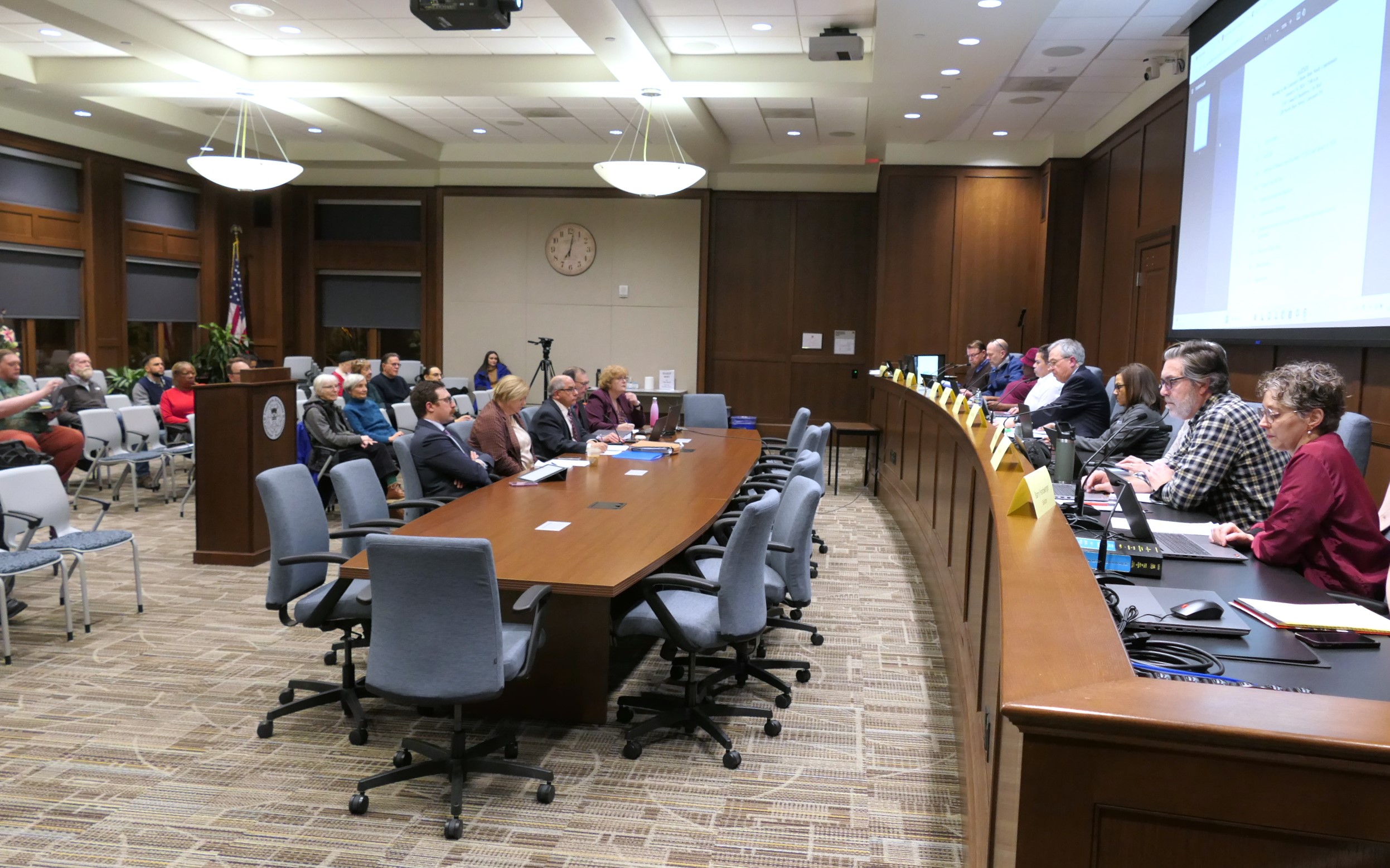Lancaster’s Home Rule Study Commission voted Wednesday evening to proceed with drafting a home rule charter, giving itself the power to craft a new framework of governance for the city and put the result to voters this November.
The vote came about 35 minutes into the meeting and was 7-1 in favor. Member Elizabeth Elias voted against proceeding and member Tony Dastra was absent.
“Now, the real work (begins),” Chairman Brian Adams said after the vote.
One-year anniversary
In coming months, the commission will continue a process begun almost exactly a year ago, when Mayor Danene Sorace, in her 2023 “State of the City” address, proposed home rule as a way to address the city’s structural budget deficit.
The 2024 State of the City address is Thursday evening at The Ware Center, and home rule will be a big part of the discussion, Sorace said after Wednesday’s vote.
“I’m pleased with the outcome of tonight’s decision,” she said, “and we have much work ahead.”
The commission has from now until roughly August to draft a charter. It then has September and October to educate the public, leading up to Election Day, Tuesday, Nov. 5, when a referendum on the charter will be put to city voters.
Up to now, the commission has been studying the city’s governmental structure and operations, a process that began in June. The Pennsylvania Economy League, a nonprofit government consulting group, has been providing information and guidance, and will continue doing so.
In comments before the vote, commission member Peter Barber advised his colleagues to take a “broad view” and not to get caught up in minutiae. Voting to draft a charter doesn’t commit the commission to a particular result, just to exploring possible changes, he said.
Member Carl Feldman said the process gives Lancaster “an opportunity to try and take back a bit of control” and preserve its government’s ability to deliver high-quality services. Chairman Adams said he was “flabbergasted” at how little control state government gives municipalities: Localities deserve the right to steer themselves, he said.
Adams and other commissioners stressed that the public will have every opportunity to be involved, as has been the case so far, and will have the ultimate say when the charter is put to a referendum in November.
Elias, the “nay” vote, said simply that she hadn’t heard enough to convince her to vote otherwise.
Among other things, a home rule charter would allow City Council to raise the earned income tax rate, or EIT. The rate is currently 1.1%, with 0.6% going to the city and 0.5% going to the School District of Lancaster.
However, if that’s the only change the charter makes, “it’s something I won’t support,” member Darlene Byrd said. City residents deserve more, she said.
Among the things she’d like to see implemented: A code of conduct, greater power for City Council, mandated quarterly budget discussions and more.
“I see the charter as giving us these opportunities,” she said.
Mayor Sorace and other city officials have said that raising more revenue through the EIT would allow the city to address its structural deficit in a more equitable than continuing to resort to property tax hikes.
During public comment, one audience member spoke, Mimi Shapiro, who said she’s “definitely” in favor of the commission moving forward. Adams read into the record an email from city resident Tom Hassler, also in favor of proceeding.
What’s next
The commission had been scheduled to convene next on Thursday, Feb. 1, but that meeting was canceled in light of Wednesday’s vote. Members agreed that Adams would determine their availability via email and schedule the next meeting. It will be publicly advertised and scheduled within the next couple of weeks, and the commission will move to a twice-a-month schedule, Adams said.
The commission intends to hear from PEL what the drafting process entails and how to subdivide it, then form subcommittees. They will be subject to the same Sunshine Law strictures as the commission itself, Solicitor Barry Handwerger said: Their meetings must be held in public and advertised in advance.
Mayor Sorace said the city will provide the commission access to the consulting firm PFM, whose analysis of city finances and operations will be helpful in the commission’s deliberations.
Vice Chairwoman Amy Ruffo said she would reach out to Franklin & Marshall College and its Center for Politics & Public Affairs about assisting with public engagement. The center has expertise in conducting surveys and deliberative forums, ideas the commission has entertained as ways of bolstering public input.
Speaking after the meeting, Sorace said her administration will be providing recommendations to the commission in coming weeks and months. She declined to elaborate, saying they are still being debated and refined.






